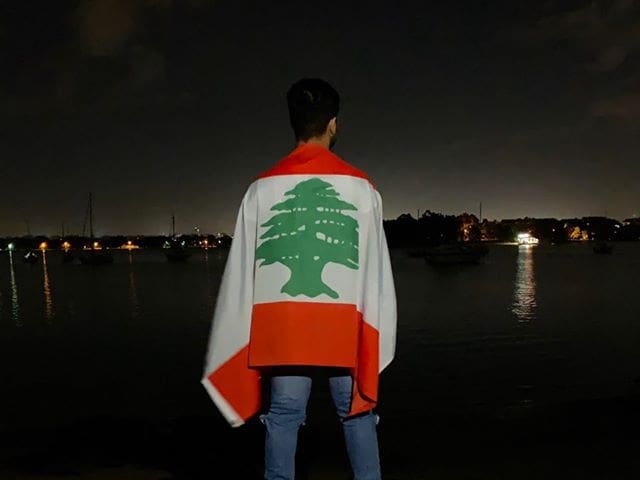Lebo, wog, or the staple “cuz” — a colourful swatch of endearments drizzled into a conversation by your non-Lebanese friends. While vapid attempts at appearing “in the know” may earn the favour of those who have transcended intergenerational marginalisation, an image still lingers of a migrant community caught somewhere between two worlds. Where is the line drawn between owning one’s heritage and resisting assimilation?
Despite suspicion around Irish migrants at the time of Federation, and Greeks and Italians in the 1960’s and 70’s, many once-vilified migrant communities have nestled into a comfortable space in Australian society. But why has it proven so difficult to dismantle the image of the terrorising anti-social Lebanese “other”? Call it our coping humour, but perhaps we are part of the problem. Do we enjoy dwelling in all two dimensions of a tired caricature? How much do we find ourselves bending to such stereotypes in our dress, manner and speech to the point where an accent manages to skip generations beyond where the Arabic language could ever reach?
Recurrent caricatures of our migrant community — particularly their disadvantaged children — are something that Lebanese-Australian youth often cling to in an attempt to embody relevance and slide in to a comfortable place in the ethnic-Australian landscape. We can look to Fat Pizza and The Footy Show where Arabic terms of endearment like “habibi”, once used affectionately by our mothers to us as children, are repurposed for identifying an individual with very little prospect in life. We’ve ritualised shrugging and laughing these stereotypes off, perpetuating a caricature of the Lebanese-Australian as little more than a meme, as though our ancestors did not toil to protect their volatile homeland and then leave it all behind in better hopes for us. While it might make onlookers more comfortable for us to laugh along with humorous portrayals of our community, we should not let ourselves be the butt of the joke. At what stage did “being Lebanese” begin to mean skirting the rules? Since when did our ethnicity mean an old-fashioned take on life? Why does a “Lebanese job” seem to infer a haphazard effort? Perhaps all that negative self-talk is no longer worth punchline.
At one point the Lebanese-Australian identity would fall into a backdrop of what it meant to be a “wog”, sharing attributes with our European-Mediterranean neighbours of speaking loudly with our hands, being family-oriented and drowning our food in olive oil. While “wog” remains a derogatory term, in the year 2020 this slur still feels more manageable than being called an “Arab.” In a post-9/11 Australia, the ethnic identity of 430 million people seems to carry more stigma than a curse word. Little wonder so many Lebanese-Australians are resistant to identifying in such a manner? It’s perhaps time to move beyond rehashing old wounds in a society that struggles to separate bad eggs from a batch of good ones; an incapacity to move beyond the mention of the Cronulla Riots in a sociology class, or to set aside race from the actions of the 2000 gang assaults in a Criminal Law lecture.
Lebanon is a vibrant corner of the globe, home to 18 different religious sects. A bustling nightlife and a breathtakingly green mountainous terrain, Lebanon has been the safe preserve for Maronite Catholics, Sunnis, Shiites, Antiochian Orthodox, and Druze for centuries. With migration dating back to 1857, it bares difficult to speak of the challenges that face fifth-generational Lebanese-Australians from the village of Kfarsghab as we would first-generation migrants from the city of Tripoli. It’s important to realise that minorities exist within our own minority, predicated on geographic, religious and generational parameters. It’s time we dropped sectarian tensions and banded together in recognising that we are first and foremost united as Australians, and it’s through organisations like Young Australian Lebanese Association (YALA) that we find our strength.
YALA, which takes its name from an Arabic word which loosely translates to “come on”, “let’s go” or “Alex come downstairs and speak to your aunt on the phone,” aims to make our voices heard. The Lebanese-Australian community is a proud and diverse diaspora. We have a lot to show for our community: the first female Governor of NSW Dame Marie Bashir, former Premier of Victoria Steve Bracks, sportsman Hazem el Masri, fashion designer Steven Khalil and Aussie Home Loans CEO John Symond. We are a community that values hard work and reveres determination, encouraging entrepreneurship and admiring our most innovative minds. Lebanese-Australians are students, we are mothers and fathers, we are doctors and lawyers, we are politicians and tradesmen, we are traditional or fervently progressive, we live in the suburbs or by the sea, we are Muslims, Christians, atheists and everything in between. But above all we are Australian, and we are bloody proud.





